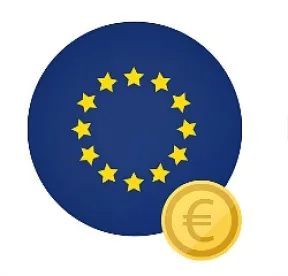On June 15, 2020, the EU published Regulation (EU) 2020/784 that amends current EU legislation restricting the use of persistent organic pollutants (POPs). The new regulation specifically restricts the use perfluorooctanoic acid (PFOA), its salts and PFOA-related compounds and came into force on July 4, 2020. However, many PFAS EU companies are facing supply chain issues due to COVID-19 that are necessitating them to ask the EU for exemptions to the ban that went into effect over two months ago.
What Does the EU Ban Say?
The EU Regulation sets a maximum concentration of 0.025 mg/kg for PFOA and any of its salts, and a maximum concentration of 1 mg/kg for PFOA-related compounds. It also includes some specific exemptions, including:
-
For the production of pharmaceutical products
-
For all articles already in use prior to July 4, 2020
-
Temporary exemptions exist until July 4, 2023 for some textiles used for occupational safety
-
Temporary exemptions exist until July 4, 2025 for photolithography, medical devices, and fire-fighting foams already installed in certain systems
The exemption for pharmaceutical products was met with criticism from NGOs such as the Health and Environment Alliance (HEAL), Health Care Without Harm (HCWH) and Arnika, as the NGOs felt that the exemption flew in the face of the movement that exists (strongly in the EU) for an outright and complete ban on PFOA for any reason whatsoever. These groups feel that such an exemption flies in the face of agreements made at Stockholm Convention in Geneva, during which numerous countries (including EU member nations) agreed to ban PFOA.
COVID-19 Impact On The Ban
The ban by the EU necessarily meant that companies supplying products to the EU or making products in the EU for sale in member nations would need to find suitable substitutes for their products. However, many such chemical substitutes are produced outside of the EU, and many of the substitutes are made in China. However, when the COVID-19 pandemic struck earlier in 2020, many of the companies found it increasingly difficult to obtain the chemical substitutes for PFOA that would allow them to continue providing products to the EU without delay. As the pandemic worsened and affected countries globally, the supply chain difficulties only increased. To date, while some of the barriers to supply chain have been removed, difficulties still persist for many companies reliant on PFOAs in their products.
The result of these supply chain issues is that several major companies have written to the European Commission asking that the ban bate be moved to some time in 2021 to allow for supply chain recovery. The most recent example of this was U.S.-based company Garmin, who uses PFOA in its electronic products. However, Garmin is only one of the many members of the trade association Information Technology Industry Council (ITIC) that was told of the issue by its suppliers in China and that have reached out to the European Commission. Although the companies expect that Chinese supply of compliant PFOA substitutes should now be fairly regularly available, the companies will still need time to implement the substitutes into the manufacturing process and certify both quality and reliability with the substitutes.
The EU’s initiatives impact not only business based in the EU, but also global businesses selling to EU member states. While PFAS use in manufacturing and presences in products is sometimes known, with over 7,000 PFAS chemicals in existence, it is often not possible for manufacturers and distributors to know whether a PFAS chemical is in fact used in its products. Diligent steps must be taken by all manufacturers and distributors to determine the exact contents of products as nations across the globe increase efforts to regulate PFAS, or else companies will be faced with significant litigation woes or last-minute compliance initiatives that can be significant in cost. With uncertainty remaining as to when COVID-19 will stop affecting nations and economies, it is absolutely necessary for companies to adequately assess compliance plans to ensure that they contain adequate planning for substitute contingencies.




 />i
/>i

